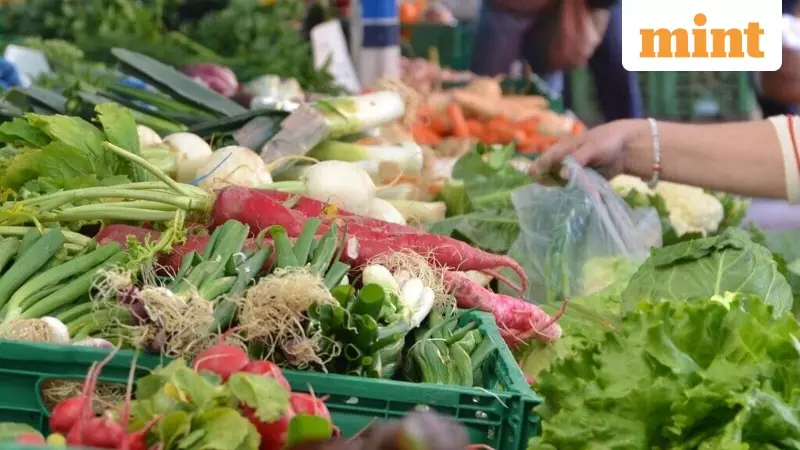
India witnessed a dramatic plunge in retail inflation during October, hitting an unprecedented low of 0.25%, according to the latest data compilation from Mint's Plain Facts. This weekly analysis, presented through easy-to-read charts, delves deeper into major stories that shaped the economy and beyond, from shifting global rice prices to rural employment trends and ongoing climate challenges.
Economic Indicators Show Significant Shifts
The consumer price index revealed a sharp decline in retail inflation, dropping to 0.25% in October from 1.44% in September. This record low was primarily driven by a favorable statistical base effect, deeper deflation in food items, and some impact from recent goods and services tax (GST) cuts.
Food prices recorded deflation of 5.02%, significantly sharper than the previous month's 2.33%, with vegetable and pulse prices falling substantially. While GST reductions showed some effect, economists noted only partial pass-through of benefits to consumers, with high gold inflation at 57.83% limiting broader impacts.
Meanwhile, core inflation, which excludes volatile food and fuel groups, edged upward to 4.33% from 4.26%, signaling an area that requires close monitoring according to economic experts.
Rural Employment and Global Trade Developments
Demand for work under the Mahatma Gandhi National Rural Employment Guarantee Act (MGNREGA) showed one of the sharpest mid-year declines in recent years. Approximately 12.8 million Indians sought work in October, down significantly from the May 2025 peak of 37.86 million.
States that typically show the highest demand for rural jobs—Andhra Pradesh, Bihar, Madhya Pradesh and Uttar Pradesh—recorded some of the most substantial drops. In Andhra Pradesh, the figure plummeted nearly 93% since May to 445,000 in October. Bihar witnessed a decline from 3.7 million to 518,000 during the same period.
In international trade, India's decision to roll back restrictions on rice exports between September 2024 and March 2025 has contributed to a sharp decrease in global rice prices, as confirmed by a World Trade Organization report. This development has particularly helped cool food inflation in African and Asian countries that depend on Indian rice.
The Food and Agriculture Organization's rice price index, which had surged 24.7% year-on-year in January 2023 and climbed another 13% by January 2024 during export restrictions, has since fallen 31%, including a 13% decline in 2025 through October.
Transportation Disruptions and Climate Concerns
The prolonged US government shutdown, which began on October 1 due to a deadlock over healthcare funding, triggered widespread flight cancellations and delays. Severe air traffic control staffing shortages occurred as unpaid workers increasingly called out sick, prompting the Federal Aviation Administration to mandate progressive flight reductions at the nation's 40 busiest airports.
This resulted in over a thousand cancellations in recent days, disrupting millions of travelers. Although the shutdown ended on Wednesday after a record 43 days following a bipartisan Senate deal, experts warn that normal operations will take time to resume.
On the climate front, as the 30th United Nations conference on climate change convenes in Brazil, a recent Ipsos survey reveals that Indians perceive lack of enforcement against deforestation and pollution (44%) as the primary barrier to addressing climate issues. Other significant obstacles include technology gaps (32%), funding shortages for environmental projects (30%), and lack of political will from government leaders (26%).
Additional notable developments include the Indian government declaring a blast near Red Fort Metro Station in Delhi that killed 13 people a terrorist incident, Pratt & Whitney's commitment to replace faulty engines in over 40 grounded IndiGo planes by June 2026, and the Union Cabinet approving ₹45,060 crore for initiatives to strengthen India's export ecosystem amid challenging international trade conditions.





